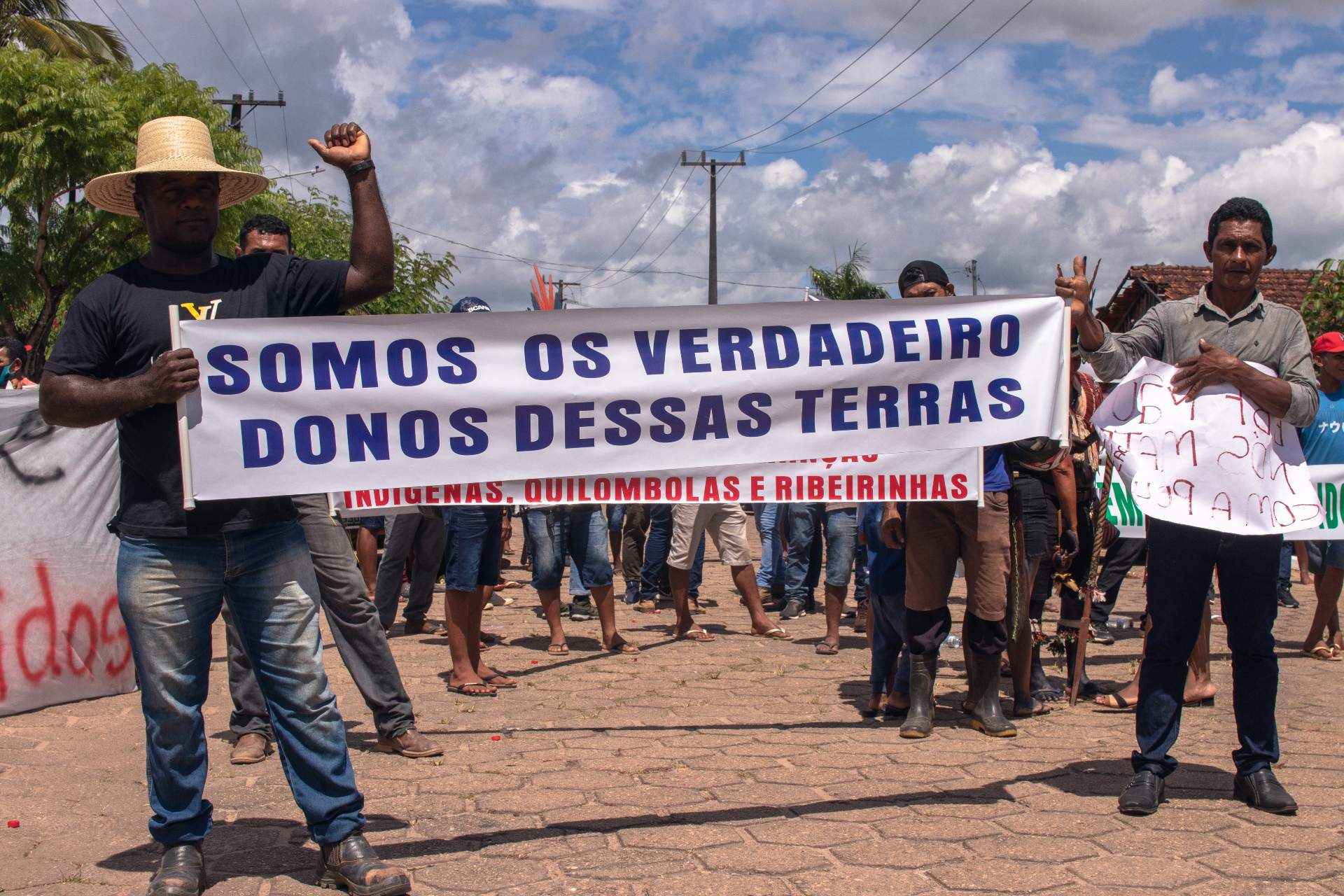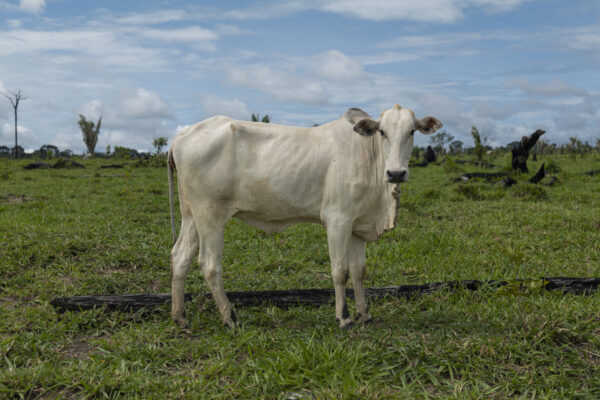Three people from the Tembé Indigenous People were shot on Monday (07) in the latest chapter of a violent land conflict that began three years ago in northeastern Pará, when the Brasil BioFuels (BBF) group started its palm oil production in the region.
The company plans to use palm oil as a raw material for a type of biodiesel used in aviation. Starting in 2025, the goal is to supply the fuel to major domestic airlines.
However, indigenous peoples, quilombolas [slave-descendant communities], and riverside communities assert that the BBF’s palm oil plantations overlap with their traditional territories. Repórter Brasil visited the region last year, where residents from these communities reported violence attributed to the Police and the company’s private security guards.

News of the attack was reported on Monday afternoon by a mission from the National Human Rights Council. The group was headed to the municipality of Tomé-Açu to investigate allegations of violations against local communities involved in the land dispute.
“They did this in retaliation for our visit to hear the Indigenous people, due to the impacts of palm cultivation in the region,” says Virgínia Berriel, a representative of the labor union Central Única dos Trabalhadores (CUT) and a member of the National Human Rights Council. The mission is part of the preparations for the Amazon Summit, an event that starts on Tuesday (08) in Belém, the capital of Para’s state.

According to Berriel, the Indigenous people claim that waterways and plantations in the Turé Mariquita Indigenous community, where the three targeted residents live, are contaminated by pesticides used in palm cultivation.
The mission also heard reports from Indigenous people who claim to be threatened by gunmen. “We are being shot at; it’s becoming a true massacre in Tomé-Açu. We urgently call for help,” says Paulo Turiwara, an Indigenous leader from the region, in an audio message sent via WhatsApp to the Federal Public Ministry (MPF).
Contacted by Repórter Brasil, the BBF Group stated that company equipment had been set on fire, and buildings had been destroyed by Indigenous people on one of their properties on the same day.
“In the action, about 30 armed invaders threatened and assaulted company workers before setting dozens of tractors, agricultural machinery, and company buildings on fire. The company’s private security team managed to contain the criminal actions of the invaders and safeguard the lives of the workers who were present,” the statement says.
In April of this year, the Public Ministry of Pará requested the pre-trial detention of the president of BBF, Eduardo Schimmelpfeng, and the head of the company’s security, for torture crimes against the community of Vale do Bocaia, in Acará, a municipality neighboring Tomé-Açu.
The MP’s request followed an incident in October 2021, in which BBF security guards were said to have destroyed family farmers’ homes. At the time, the group issued a statement stating that its employees had been threatened by “invaders who, for several months, have been illegally trying to seize control of BBF’s farms.”
Regarding the land dispute, the company stated to Repórter Brasil in August 2022 that there was “no overlap of [the company’s] areas with the territories of traditional communities”, and that BBF “peacefully, fairly, and continuously possessed its areas.”
Arrest after the attack
Felipe Tembé, 23, who was injured in the back by gunfire on Monday, was detained by the police after receiving emergency medical treatment. In a statement, the Secretariat of Public Security and Social Defense of Pará reported that Felipe was “detained for investigation into the damage caused to the private building.”
According to the Secretariat, the security guard identified as the perpetrator of the gunshot that hit an Indigenous individual was “sent to the prison system.” “We emphasize that, despite the case occurring within a private property, we are taking all necessary actions, within the State’s responsibilities, to clarify the circumstances of the incident.”
In protest, Indigenous people went to the police station demanding Felipe’s release. Tires were set on fire, and roads were closed. The Secretariat of Public Security and Social Defense states Felipe was released after giving a statement.
Representatives of the Tembé Vale do Acará Indigenous Association accuse the Police of intervening brutally in the community, “accompanied by heavily armed security guards from Brasil BioFuels (BBF).” The entity also claims that a bridge providing access to the Indigenous community had been blocked, hindering residents’ movement.
On Friday (08/04), the young man Kauã Tembé had already been shot in the Bananal village, another area claimed by Indigenous people and in dispute with BBF. In a document sent to the Federal Public Ministry (MPF), the association states that the shots came from the Police or armed security guards of the company who, on that day, had acted “in a brutal manner.”

According to a G1 news article, the MPF notified the governor of Pará, Helder Barbalho (MDB), to take measures to curb police violence in the Indigenous territory. The Secretariat of Public Security and Social Defense of Pará issued a statement denying that the shots had come from their teams and stating that the incident would be investigated.
The Brasil BioFuels (BBF) group
Owner of an area of palm plantations exceeding 75,000 hectares in the Amazon, with a production capacity of 200,000 tons of oil per year, the BBF group operates dozens of power plants in the North region that use biodiesel and vegetable oil, manufactured by the company itself, for energy production.
Now, the group aims to supply the aviation market. In April 2022, BBF signed an exclusive commercialization agreement with Vibra Energia, the largest aircraft fuel distributor in the country. On that occasion, they announced a R$2 billion investment to produce biodiesel from palm oil.
The fuel, made from renewable sources, seeks to meet the aviation sector’s demand for alternatives to fossil fuels. Traditionally used in commercial aviation, kerosene is a petroleum derivative and a significant source of greenhouse gas emissions.
Representatives of Brazil’s largest airlines – Latam, Gol, and Azul – participated in the event where BBF’s investment in the sector was announced. According to BBF itself, they would be the main interested parties in the product. In 2022, all three companies told Repórter Brasil that they had no commercial relationship with the company.
*Andre Campos, Carlos Juliano Barros, Hélen Freitas, Isabel Harari, Leonardo Sakamoto and Paula Bianchi collaborated

